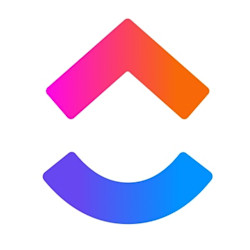As a game developer, you know that creating amazing games is only part of the equation. Managing the financial side of your business is equally important. That's where ClickUp's Invoice Template for Game Developers comes in to save the day!
With this template, you can easily create and send professional invoices to your clients and partners, ensuring clear and transparent financial documentation. Here's how it helps you streamline your game development business:
- Generate detailed invoices that include game development fees, licensing agreements, and any additional expenses.
- Track and organize all your invoices in one place for easy reference and follow-up.
- Maintain professional relationships with clients and partners by providing clear financial documentation.
Don't let invoicing become a headache. Try ClickUp's Invoice Template for Game Developers today and focus on what you do best – creating amazing games!
Invoice Template For Game Developers Benefits
When it comes to invoicing in the game development industry, having a streamlined process is crucial. That's where the Invoice Template for Game Developers comes in handy. Here are some key benefits:
- Ensuring accurate and professional financial documentation for services rendered
- Providing transparency and clarity to clients and partners regarding game development fees and expenses
- Streamlining the invoicing process and saving time on manual calculations
- Facilitating smooth and efficient financial transactions, leading to stronger business relationships
Main Elements of Game Developers Invoice Template
ClickUp's Invoice Template for Game Developers is designed to streamline your financial processes and ensure smooth transactions with clients and partners. Here are the main elements of this template:
Custom Statuses: Track the progress of your invoices with the Open and Complete statuses, allowing you to easily identify which invoices are pending and which ones have been paid.
Custom Fields: Use 8 different custom fields, including Amount, Contact, Email, Payment Type, Rate, Client, Notes, and Hours, to input all the necessary details for each invoice and ensure accurate financial documentation.
Custom Views: Access 6 different views to manage your invoices effectively. This includes the Calendar view, which allows you to visualize due dates and plan your financial schedule, and the All Invoices view, where you can see all your invoices at a glance.
Invoice Tracking: Utilize ClickUp's intuitive features like Automations and Reminders to stay on top of invoice due dates, payment tracking, and client follow-ups.
Collaboration: Share the Invoice Template with your team and collaborate seamlessly, allowing multiple team members to access and update invoice information in real-time.
How To Use Invoice Template For Game Developers
If you're a game developer and need help creating invoices for your clients, follow these 5 simple steps using the Invoice Template for Game Developers in ClickUp:
1. Fill in your company information
Start by entering your company's name, address, contact information, and any other relevant details. This will ensure that your clients have all the necessary information to make payments and contact you if needed.
Use custom fields in ClickUp to easily input and store your company details.
2. Add client details
Next, input the client's name, address, and contact information. This will help you keep track of who the invoice is for and make it easier for your clients to reference it when making payments.
Create tasks in ClickUp to assign specific clients and their details to each invoice.
3. Include project details
Specify the project name, description, and any other relevant details. This will help both you and your client identify which project the invoice is associated with and avoid any confusion.
Use custom fields in ClickUp to add project details to each invoice.
4. Itemize services and costs
List each service or task you provided to the client along with the corresponding cost. Be clear and detailed in your descriptions to ensure that your client understands what they are being charged for.
Use tasks in ClickUp to itemize each service and add the cost as a custom field.
5. Calculate totals and payment terms
Calculate the subtotal, taxes, and any additional charges. Then, include the total amount due and specify the payment terms, such as the due date and accepted payment methods. This will provide clarity to your clients and help ensure timely payment.
Use custom fields in ClickUp to automatically calculate the totals and set reminders for payment due dates.
With the Invoice Template for Game Developers and ClickUp's features, you can streamline your invoicing process, keep track of payments, and maintain a professional image with your clients. Start using this template today and make invoicing hassle-free!
Get Started with ClickUp’s Invoice Template For Game Developers
Game developers can use the ClickUp Invoice Template to streamline their invoicing process and ensure accurate financial documentation for their services.
First, hit “Add Template” to sign up for ClickUp and add the template to your Workspace. Make sure you designate which Space or location in your Workspace you’d like this template applied.
Next, invite relevant members or guests to your Workspace to start collaborating.
Now you can take advantage of the full potential of this template to manage your invoices:
- Use the Calendar View to keep track of invoice due dates and payment deadlines
- The Paid Income View will help you monitor and analyze your income from completed invoices
- Use the All Invoices View to have a comprehensive overview of all your invoices
- The Invoice Due Date View will help you prioritize and manage invoices based on their payment due dates
- Use the Invoice by Client View to organize and track invoices for each individual client
- The Invoices Template Guide View will provide you with a step-by-step guide on how to use the template effectively
- Customize the eight custom fields (Amount, Contact, Email, Payment Type, Rate, Client, Notes, Hours) to accurately reflect your invoicing details
- Update statuses as you progress through the invoicing process, from Open to Complete, to keep track of payment status and ensure timely follow-ups.








